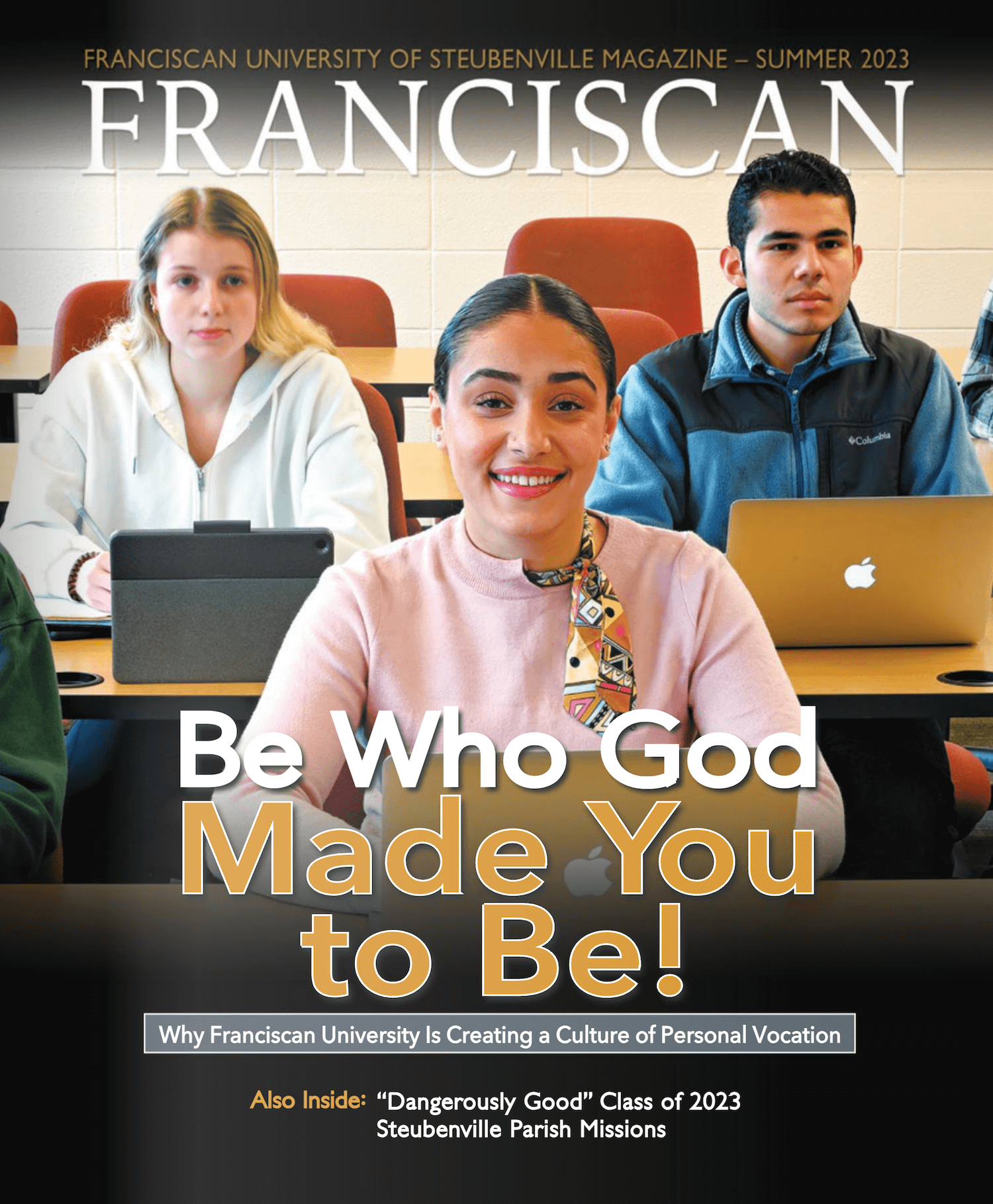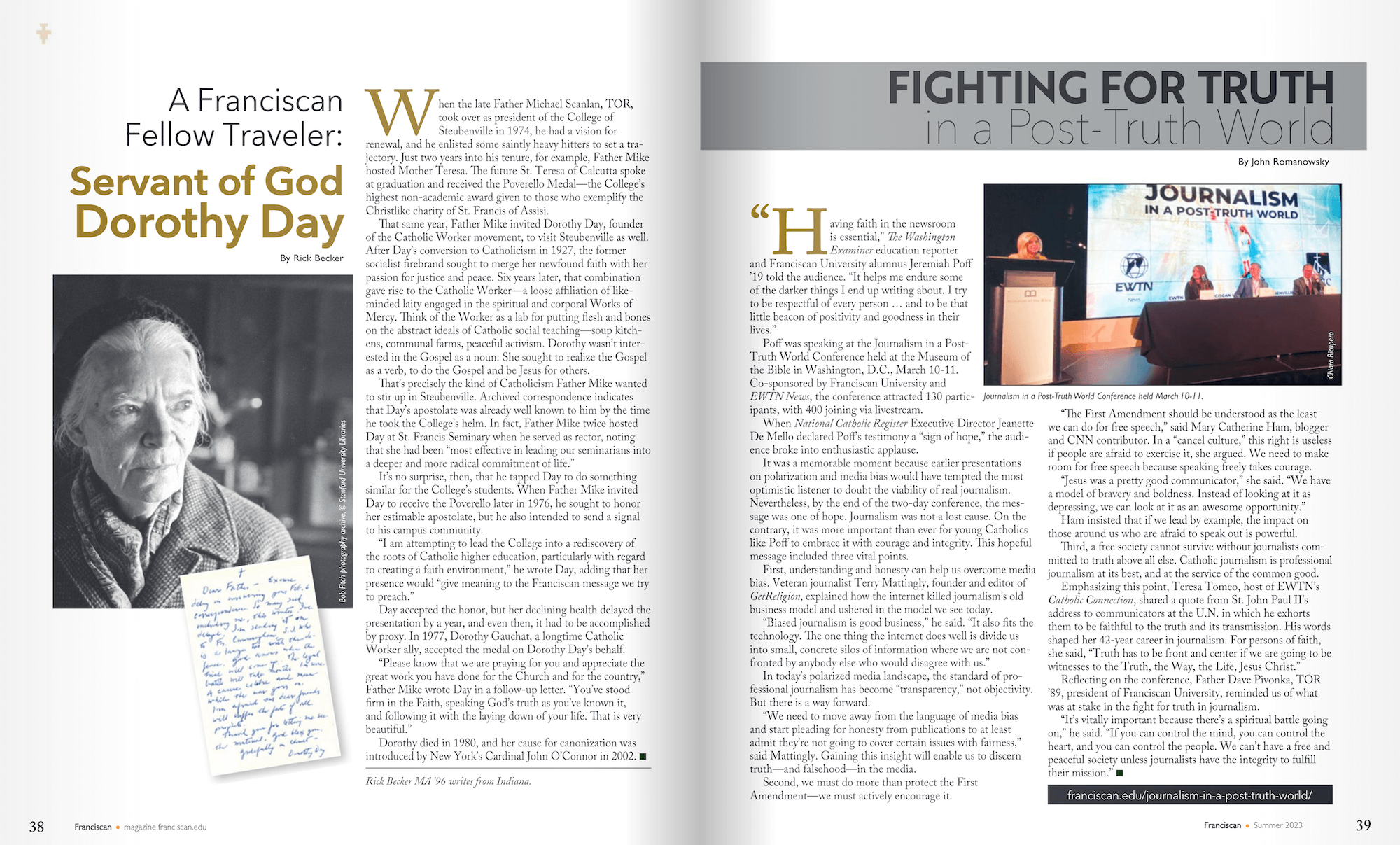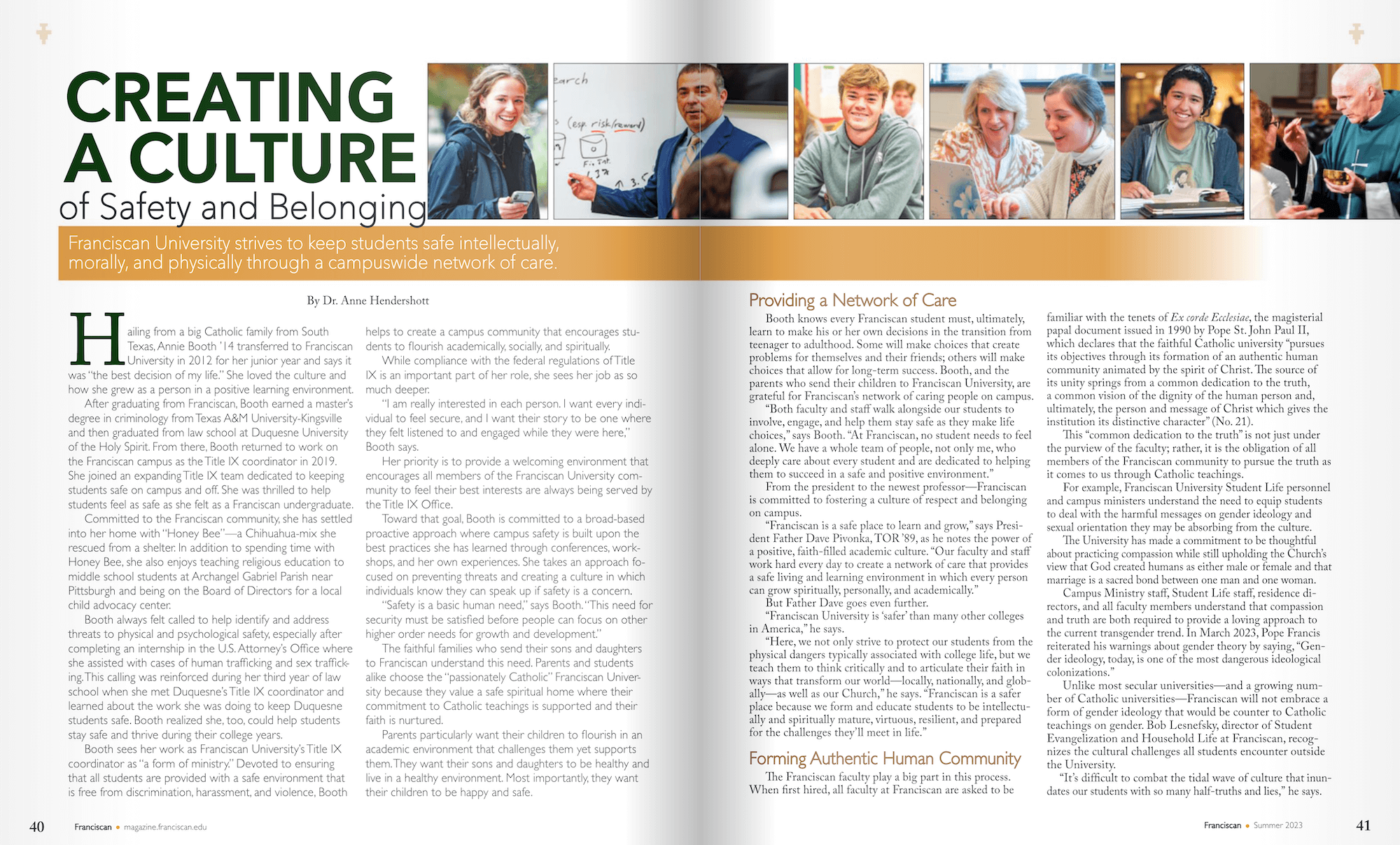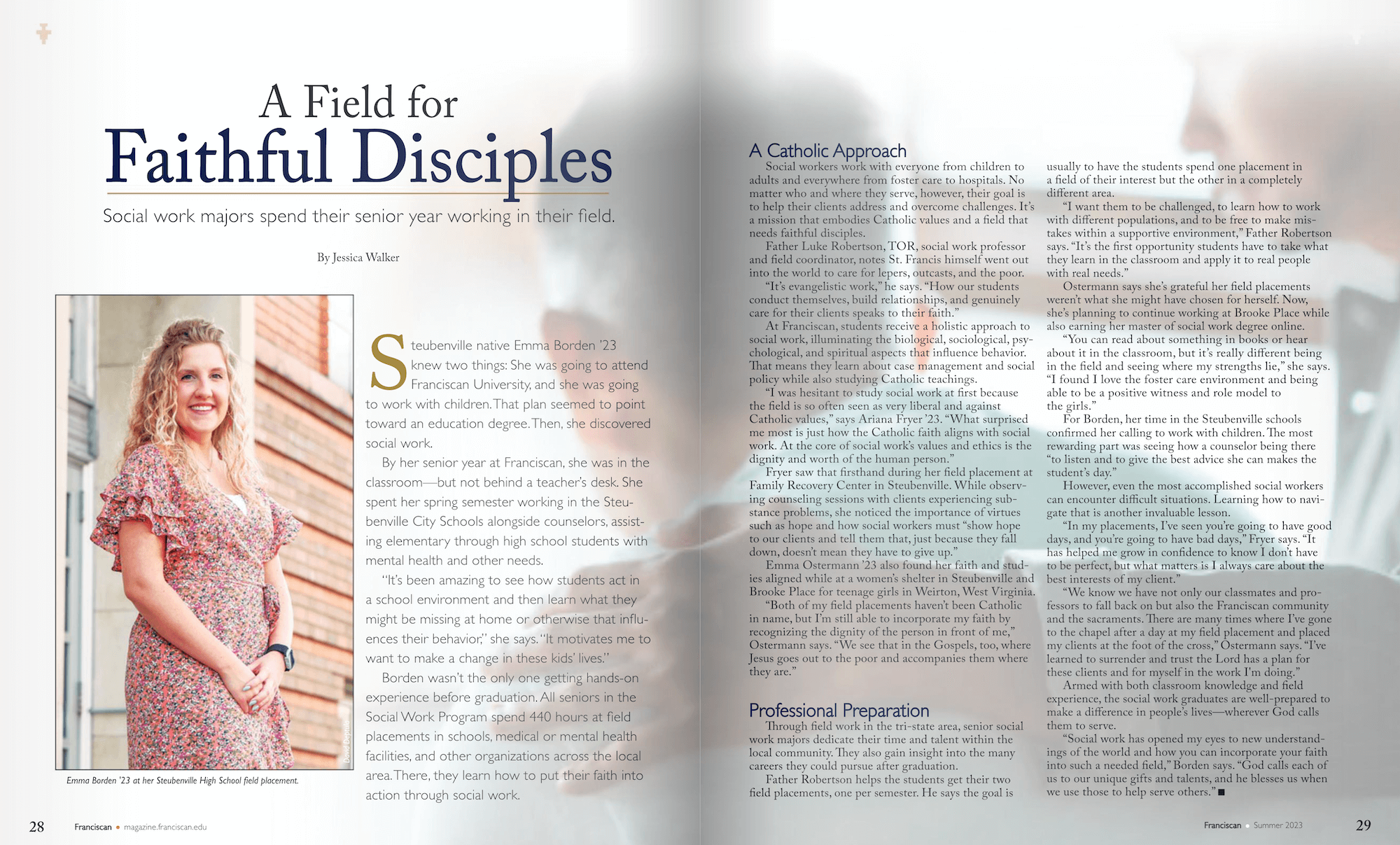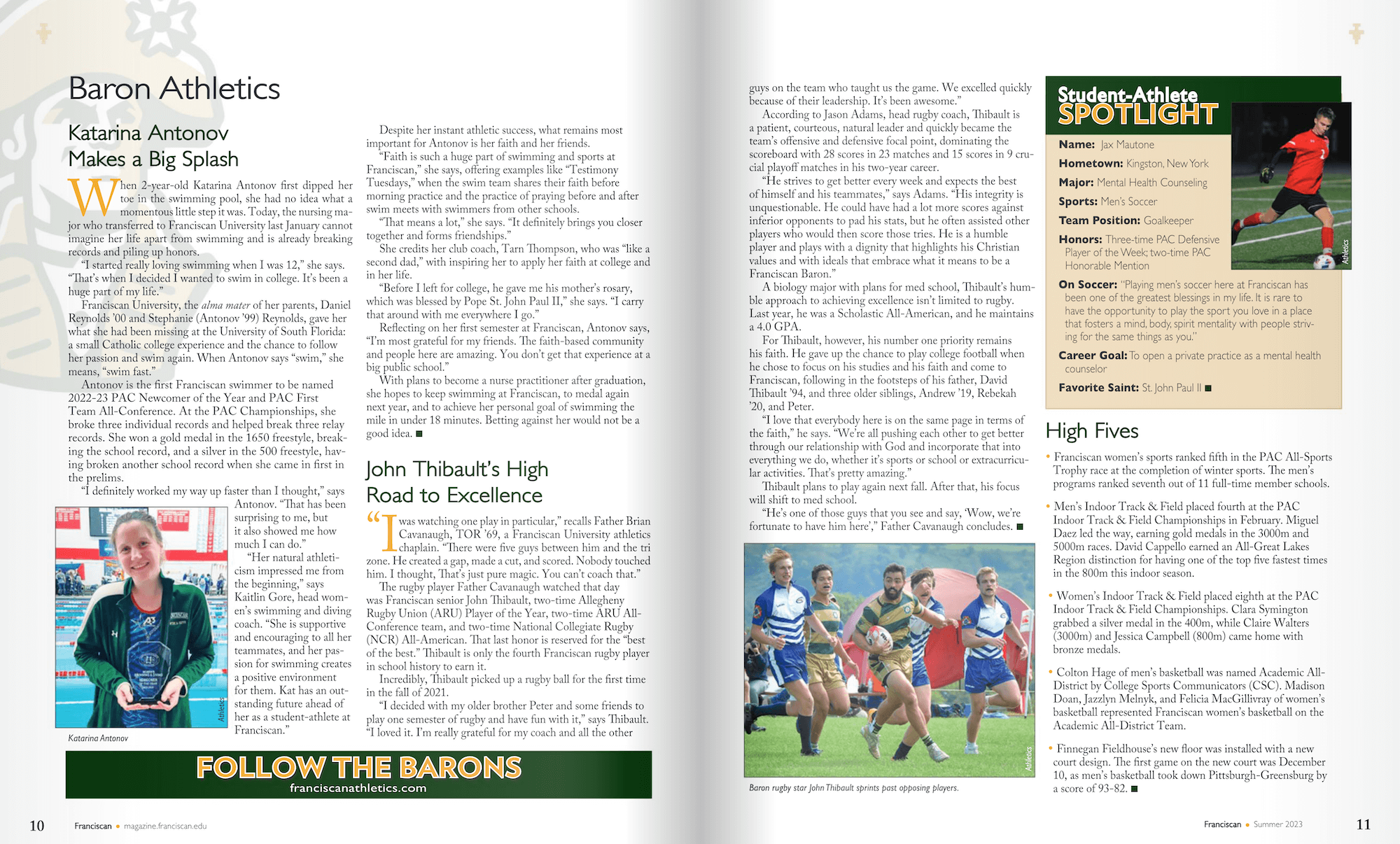When the late Father Michael Scanlan, TOR, took over as president of the College of Steubenville in 1974, he had a vision for renewal, and he enlisted some saintly heavy hitters to set a trajectory. Just two years into his tenure, for example, Father Mike hosted Mother Teresa. The future St. Teresa of Calcutta spoke at graduation and received the Poverello Medal—the College’s highest non-academic award given to those who exemplify the Christlike charity of St. Francis of Assisi.
That same year, Father Mike invited Dorothy Day, founder of the Catholic Worker movement, to visit Steubenville as well. After Day’s conversion to Catholicism in 1927, the former socialist firebrand sought to merge her newfound faith with her passion for justice and peace. Six years later, that combination gave rise to the Catholic Worker—a loose affiliation of like-minded laity engaged in the spiritual and corporal Works of Mercy. Think of the Worker as a lab for putting flesh and bones on the abstract ideals of Catholic social teaching—soup kitchens, communal farms, peaceful activism. Dorothy wasn’t interested in the Gospel as a noun: She sought to realize the Gospel as a verb, to do the Gospel and be Jesus for others.
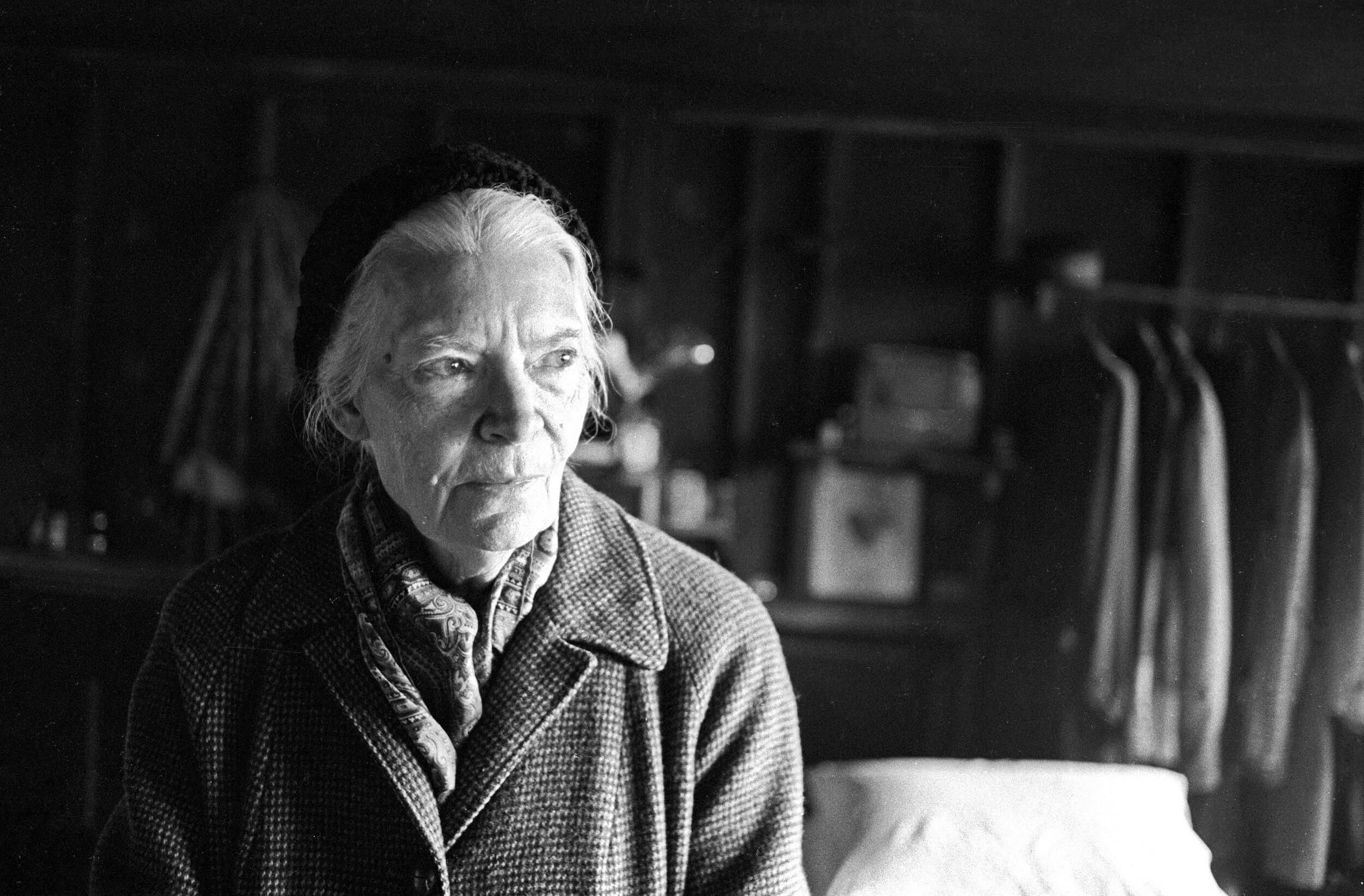
Bob Fitch photography archive, © Stanford University Libraries
That’s precisely the kind of Catholicism Father Mike wanted to stir up in Steubenville. Archived correspondence indicates that Day’s apostolate was already well known to him by the time he took the College’s helm. In fact, Father Mike twice hosted Day at St. Francis Seminary when he served as rector, noting that she had been “most effective in leading our seminarians into a deeper and more radical commitment of life.”
It’s no surprise, then, that he tapped Day to do something similar for the College’s students. When Father Mike invited Day to receive the Poverello later in 1976, he sought to honor her estimable apostolate, but he also intended to send a signal to his campus community.
“I am attempting to lead the College into a rediscovery of the roots of Catholic higher education, particularly with regard to creating a faith environment,” he wrote Day, adding that her presence would “give meaning to the Franciscan message we try to preach.”
Day accepted the honor, but her declining health delayed the presentation by a year, and even then, it had to be accomplished by proxy. In 1977, Dorothy Gauchat, a longtime Catholic Worker ally, accepted the medal on Dorothy Day’s behalf.
“Please know that we are praying for you and appreciate the great work you have done for the Church and for the country,” Father Mike wrote Day in a follow-up letter. “You’ve stood firm in the Faith, speaking God’s truth as you’ve known it, and following it with the laying down of your life. That is very beautiful.”
Dorothy died in 1980, and her cause for canonization was introduced by New York’s Cardinal John O’Connor in 2002.
Rick Becker MA ’96 writes from Indiana.
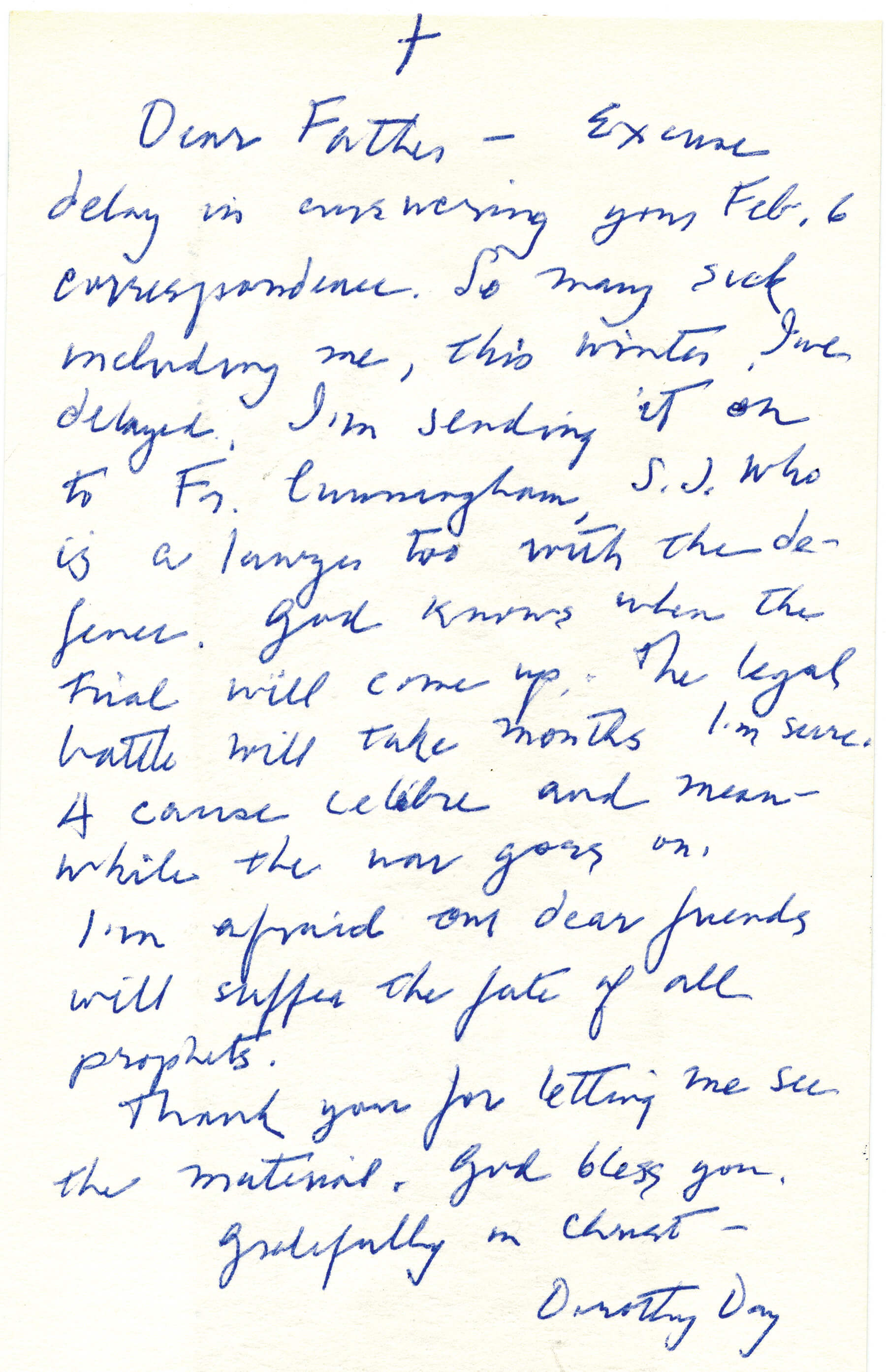
St. John Paul II Library Archives



